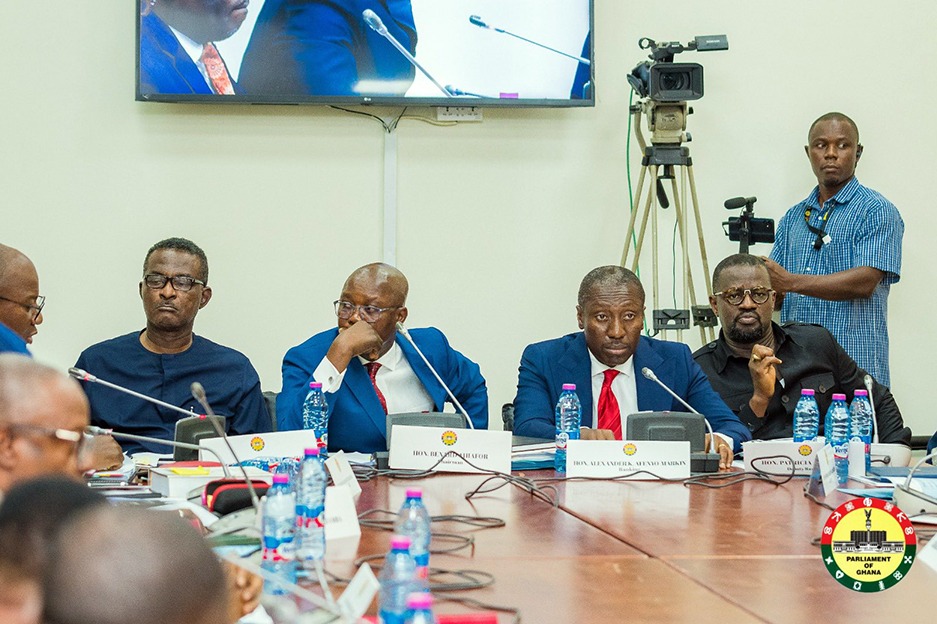…. as Minority Shuns Proceedings Amid Baffoe-Bonnie’s Steadfast Defense
By Prince Ahenkorah
In a dramatic turn of events, the vetting process of Chief Justice nominee, Justice Paul Baffoe-Bonnie, descended into controversy as the Minority Caucus in Parliament staged a walkout, denouncing the nominee and refusing to partake in the proceedings conducted by the Appointments Committee.
The decision to boycott the vetting, spearheaded by Minority Leader Alexander Afenyo-Markin, came after a fiery confrontation with Majority Leader Mahama Ayariga, prompting a brief suspension of the session. Upon resuming, Afenyo-Markin declared the Minority’s complete withdrawal, leaving only Majority MPs to interrogate the nominee.
Asserting their stance, Afenyo-Markin proclaimed, “Let it be known to the Chairman and the nation that we, the Minority Caucus, unanimously reject the nominee. The Majority may proceed with the interrogation, but we vehemently oppose this nomination.”
The Minority’s protest stemmed from apprehensions regarding the selection process and ongoing legal battles initiated by former Chief Justice Gertrude Torkonoo challenging her removal from office. Justice Baffoe-Bonnie, currently serving as Acting Chief Justice, was nominated by President John Mahama to succeed Torkonoo, sparking public debate with critics alleging political interests given his perceived ties to the president during the 2013 election petition.
During his appearance before the committee, Justice Baffoe-Bonnie vehemently refuted claims that his nomination was a political favor. Dismissing the notion humorously, he quipped, “I would be disappointed if my sole qualification for Chief Justice was simply voting for the President in 2013.”
Emphasizing his unblemished judicial career spanning 33 years, Justice Baffoe-Bonnie asserted, “Integrity and fairness have been the cornerstones of my tenure. Since joining the Judiciary, I have upheld the oath to dispense justice without any bias.”
In defending his legacy, Justice Baffoe-Bonnie recounted a pivotal decision early in his career – the sentencing of criminal Ayi Ayeetey (known as Atta Ayi) to 70 years in prison. Justifying the stringent penalty, he explained it as a measure to safeguard society from violent crime.
Beyond his defense, Justice Baffoe-Bonnie unveiled an ambitious judicial reform agenda, including the implementation of 24-hour court operations in specific areas, aiming to enhance access to justice and alleviate case backlog challenges.
Proposing a comprehensive prison reform strategy encompassing community service, a parole system, and the revival of the ‘Justice for All’ initiative to tackle prison overcrowding, Justice Baffoe-Bonnie highlighted the urgency of addressing Ghana’s prison crisis.
Additionally, he suggested rescheduling Ghana’s general election date from December 7 to November 7 to facilitate timely resolution of election disputes before the new government’s inauguration on January 7. Advocating for the electronic service of court documents to expedite legal processes, he emphasized the efficiency gained from digital advancements in resolving disputes promptly.
Despite the Minority’s boycott, the Appointments Committee is poised to conclude its vetting process and present a report to Parliament. The confirmation of a Chief Justice mandates a two-thirds majority vote from members present and participating.


